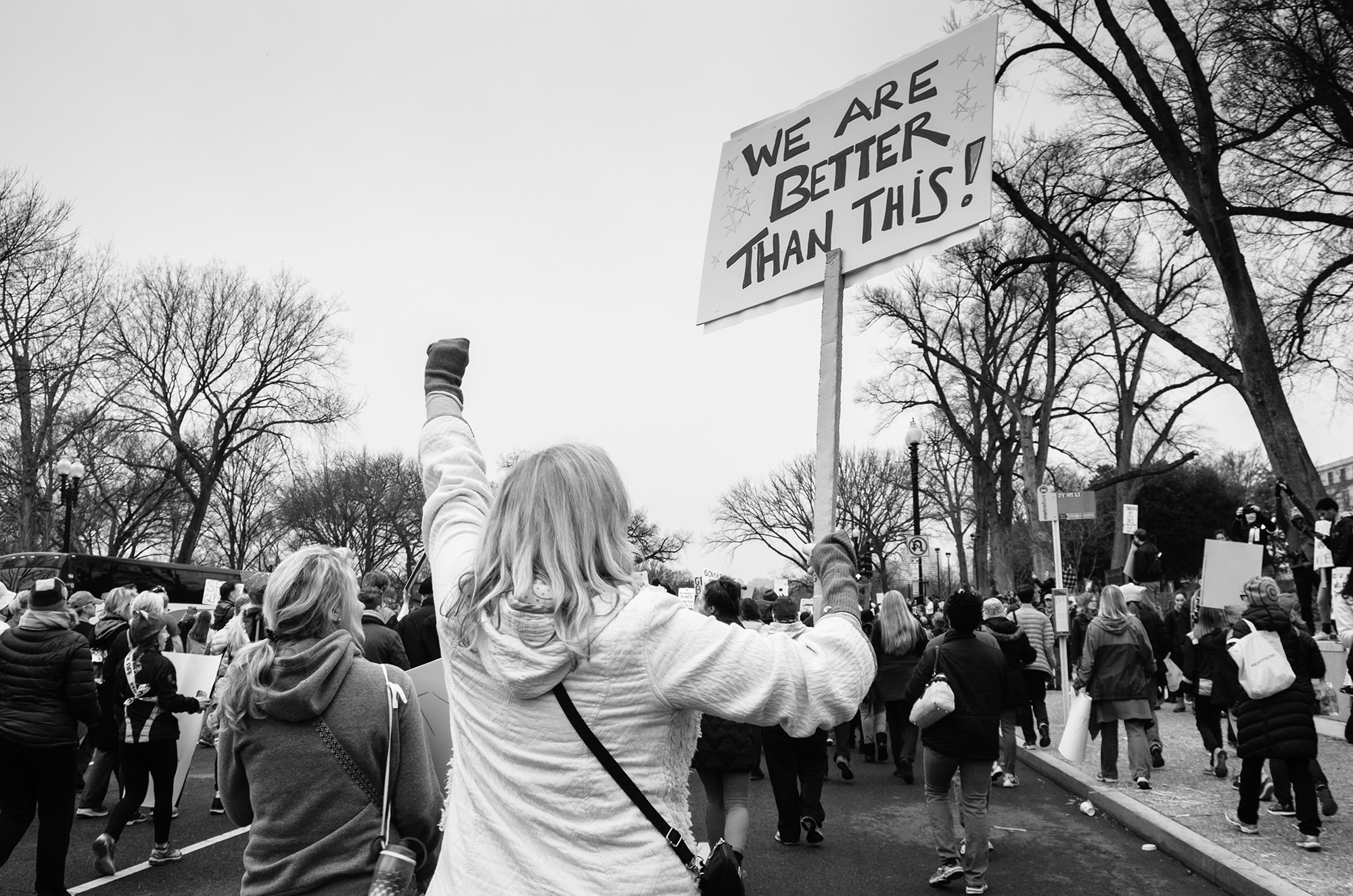Education
My Diversity, Equity, and Inclusion Statement
Part of the problem in discussing this is that the meaning of words, as used in some-but-not-all Social Justice-speak, often differs from common usage.

I Am Not Afraid of Social Justice
I am not afraid of eliminating discrimination. I am not afraid of dismantling barriers to freedom, opportunity, and dignity. I welcome such dismantling.
I am not afraid of welcoming women, racial or ethnic minorities, sexual orientation minorities, people who are disabled, gender non-binary, or pretty much any other manifestation of human diversity into the halls of academe, wealth, and power. On the contrary, if social justice is defined as equality of opportunity and an end to discrimination and barriers, I welcome it.
Nonetheless, there are reasons to fear, not social justice, but the intolerant oppressiveness of some strains of social justice activism. Although we do not need to give in to fear, if one is to fight oppressors, one needs to first acknowledge their existence, and their power—and the very good reasons to fear them. I have a track record of standing up to intellectual mobs, and plan to continue to do so. That does not mean there is nothing to fear.
I am afraid of those who will punish others for not subscribing to a toxic and oppressive view of social justice. I am afraid, not of actual social justice, but of what some people are willing to do, and are in fact now doing, in the name of social justice.
I fear less for myself than for younger scholars whose work leads them to evidence that runs afoul of dogmas popular in the academy. I am afraid they will be punished for discovering truths and hounded out of the academy. I am afraid that those truths will never come to light.
Language as Trojan Horse
Part of the problem in discussing this is that the meaning of words, as used in some-but-not-all Social Justice-speak, often differs from common usage. Here is my Academic Social Justice Translator:
Social Justice:
Common: Fairness for people.
Social Justice: Turning the tables. Justifying stigmatization of, hostility towards, and outright discrimination against those not in recognized victim groups or their visible allies.
Diversity:
Common: Variety.
Social Justice: Conferring advantages to groups the Left deems protected.
Equity:
Common: Fairness. Rewards commensurate with merit or contributions.
Social Justice: Equality or superiority of outcomes for demographic groups the Left deems protected, regardless of merit or contributions.
Inclusion:
Common: Everyone is welcomed and treated with dignity and respect.
Social Justice: Marginalized groups, and sufficiently performative woke white people, are welcomed with dignity and respect. Others are subject to scorn and ostracism.
Clearly, not everyone in academia or on the Left subscribes to social justice usages. Enough do, however, so that, in this essay, when I use these terms, they refer to the meanings described above.
Social Justice as Old Fashioned Bigotry
Many academic social justice activists are creating, not an inclusive society or academy, but an exclusive one. They are not seeking to end discrimination; they are seeking to change who is targeted with discrimination. They are justifying stigmatization of anyone not a member or vocal “ally” of an approved victim group, and they are creating institutional means to punish anyone they see as standing in their way.
Vindictive Social Justice
I am afraid of vindictive protectiveness: the willingness to aggressively punish others, to censor their ideas, to damage or ruin their careers, in the name of protecting members of victim groups, not from physical violence and not even from discrimination—but from ideas. For some examples, see here, here, here, here, here, here, or here.
Social psychologist calls for banning and deplatforming, then denies it. Thread. This is exactly how leftwing threats to academic freedom manifest. 1/n
See here "Its not no-platforming." Remember that. https://t.co/fc4JKGGIrO
— Lee Jussim (@PsychRabble) December 3, 2018
I am afraid because the U.S. National Labor Relations Board found that James Damore’s discussion of the available scientific evidence on the biological bases of sex differences were “discriminatory and constituted sexual harassment.” Are scientists who study biological bases of sex differences also engaging in “sexual harassment”?
I am afraid because the U.S. Equal Opportunity Commission has defined sexual harassment in subjective terms: “For example, it is illegal to harass a woman by making offensive comments about women in general.” Offensive according to whom? We are not told. It could be anyone, for any completely concocted or delusional reason.
I am afraid for all scholars who have ever published anything controversial that might run afoul of repressive social justice dogmas. I am afraid because I do not want to get mired in the life-sucking swamp of Title IX investigations into ideas, as happened to Laura Kipnis and Stuart Reges. I am afraid, because I have academic colleagues who seem to truly believe that social justice cannot be criticized or mocked and that leashing men like dogs is a defensible idea.
I fear for the state of the university. How are universities supposed to pursue truth if discussing certain types of scientific evidence becomes a punishable offense? This is corrosive to knowledge and to a well-functioning democracy. Denunciations are indispensable to authoritarian regimes.

When even left-leaning pundits at the Washington Post and the New York Times post articles decrying leftwing intolerance on campus, there is something to fear. Although rightwing pressure groups can create their own censorious outrage mobs, I am far more afraid of the toxic activities of academics themselves. Especially for younger scholars, academic success does not rely on views of Fox News pundits. It does rely heavily on subjective evaluations of one’s colleagues—peer review, letters of recommendation, support among senior faculty, grant panels, and hiring. Intolerant colleagues can sound the death knell for careers and for ideas in ways that intolerance outside the academy cannot.
Much of the time, when I bring this up with my colleagues in academia, the response is some variation of “Look at all the white supremacists!” This is a terrible argument. It’s like responding to, “Why don’t you get a flu shot?” with “Look at all the people who die from cancer!” White supremacists have not overtaken the academy. Self-described radicals, activists, and Marxists have.
Diversity Statements as Compelled Speech
I do not need to write a statement on all the things I have done for diversity, equity, and inclusion. I could, though. I have been an organizer in a multi-ethnic community to support public schools where half the students were not white. I have been an active participant/mentor in programs that seek to advance the careers of promising minority students. I have headed diversity committees and helped to create pro-diversity initiatives in my department—and by “diversity” here, I mean the very traditional types of demographic diversity usually emphasized by social justice activists. A fair amount of my scholarship reveals the subtle and pernicious effects of stereotypes and prejudice, including this paper showing how weight and gender stereotypes can produce self-fulfilling prophecies that accumulate across interactions.
Nevertheless, I am afraid because mandatory DEI statements resemble loyalty oaths. They invite an academic version of Havel’s greengrocer, who proclaimed fidelity to communism, not because he supported it, but because he felt he had to broadcast his obsequious fidelity to the ideology of the State. Only now it is the University, not the State, compelling fealty.
Diversity, Equity, and Inclusion Statements as Exclusionary Political Litmus Tests
Some argue that there is nothing wrong with DEI statements because fighting discrimination is a necessary part of being a college professor. If that is the case, then all a professor would need to write is, “Grades are 100 percent determined by multiple choice tests and they are graded by a scantron machine. This insures that discrimination will not affect grades.” I doubt such a DEI statement would satisfy anyone.
Are DEI statements about ensuring diversity in the commonly understood sense or in the repressive academic social justice sense? If the former, then, the following would be perfect qualifications:
- My classes include sections of free speech, censorship, and academic freedom.
- I am a member of Heterodox Academy.
- I delivered a keynote speech on academic freedom at a conference of the Foundation for Individual Rights in Education.
- I have written essays criticizing academic intolerance in outlets such as the Wall Street Journal, Quillette, and AreoMagazine.
- I have conducted social science research on political intolerance among academics.
Rather than being welcome, I suspect such a statement would be disqualifying. And what if an applicant has done nothing to advance diversity but, instead, contributes to improving the human condition as, say, a volunteer firefighter, children’s soccer coach, or museum volunteer? One sort of service is not inherently superior to any other; thus DEI statements are exclusive by not valuing these other contributions.
DEI statements will almost surely be used, at least sometimes, as political litmus tests: “Are you with us or against us?” Of course no ad will say, “leftists and social justice sympathizers only.” But requiring DEI statements is essentially requiring a professed commitment to social justice activism.
Conclusion
DEIs and the toxic, punitive forms of social justice activism warrant fear. I do not want my colleagues to give in to this fear. Recognizing the danger is the first step to preventing it; to not giving in to fear.
The rise of DEI statements is a symptom of a rising tide among institutions of higher education to endorse de facto political discrimination in the name of social justice. Fears about not getting the job, the invitation to a panel, or the promotion are well-justified. For individual academics, it will take extraordinary courage to risk and resist the vindictive punishment of one’s colleagues.
However, it is possible that this rising tide of political intolerance and litmus tests can be stemmed, not by individuals, but by institutions. Perhaps some will step up to create an alternative: “At Our University, we value truth, reason, evidence, and accomplishments. We don’t care about your politics or demographics. We realize that ‘justice’ means different things to different people, so we reject declarations of loyalty to any ideology.” My guess is that people would flock to such a place.
The rest, however, are complicit in creating a climate of fear, regardless of whether or not I personally have to write a statement about how I advance diversity, equity, and inclusion.
Except I have just published mine.






